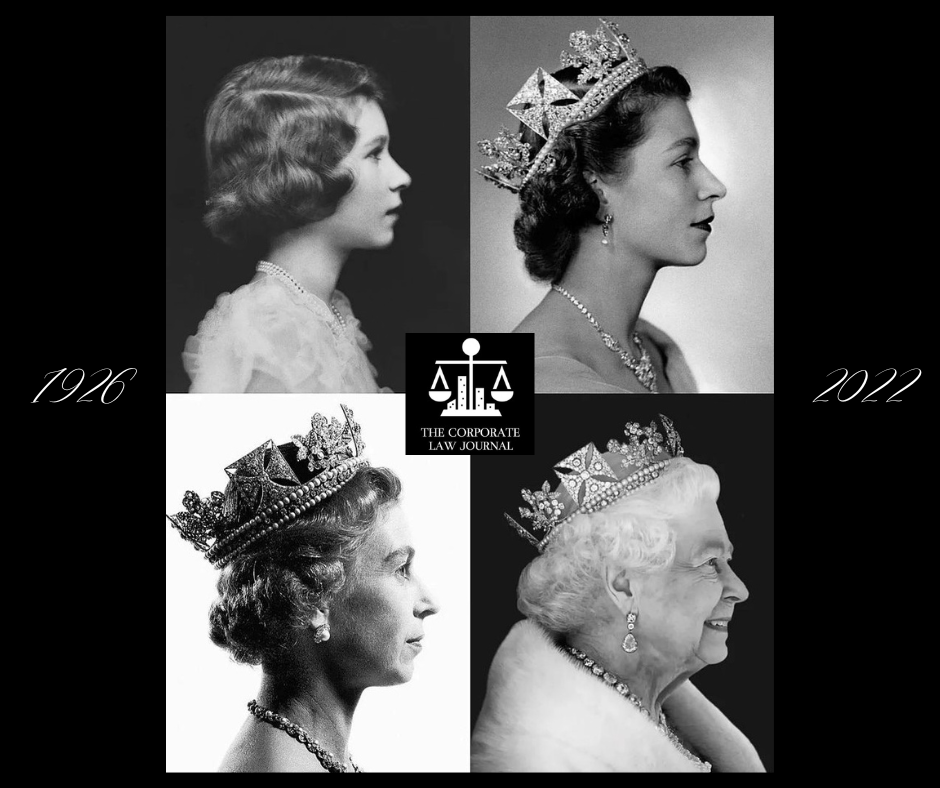How Queen Elizabeth II Ruled With Soft Power
Pictured: Queen Elizabeth II through the years.
In the afternoon of Thursday 8 September 2022 Queen Elizabeth II, the monarch of the United Kingdom, passed away at her royal residence of Balmoral Castle in Scotland. King Charles III is now the reigning monarch, with his wife now becoming Queen Consort Camilla. It was a mass shock to the world as two days prior Queen Elizabeth was fulfilling her constitutional duty. On Tuesday 6 September 2022, Queen Elizabeth accepted the resignation of Boris Johnson as prime minister and appointed the new ‘Prime Minister of the United Kingdom’, Liz Truss - which The Corporate Law Journal reported on here.
Throughout her years as Queen, many people had noted Queen Elizabeth’s ability to rule with ‘soft power’ The definition for soft power is ‘the ability to affect others to obtain the outcomes one wants through attraction rather than coercion or payment” (Soft Power by Joseph Nye, 1990). The term was theorised by Joseph Nye as a unique, and sometimes opposite way that rulers lead their people - which was usually often through force and fear even if wrapped in subtlety.
Queen Elizabeth II adopted this similar quality of ruling by soft power where even if people had differences with the monarchy, there was a lasting zeitgeist of respect and adoration for the Queen throughout her reign. She very very rarely publicly spoke on politics. Instead she publicly ruled by soft power as a figure of public service, serving in the interest of her country, the Realms and the Commonwealth. Queen Elizabeth exercised this soft power in private too by advising 15 prime ministers where she was able to guide and lead the premiers of the country through times of peace and crisis. From the shadows of wars, to economic declines and most recently the COVID-19 pandemic, Queen Elizabeth II proved as the nation’s constant and did so with ease as she continued to be admired for her soft power.
Politicians today can learn from this execution of power as it has been proven that “the ability to establish preferences tends to be associated with intangible assets such as an attractive personality, culture, political values and institutions, and policies that are seen as legitimate or having moral authority” (Harvard Business School). Currently, in the United Kingdom the nation is currently facing a cost of living crisis, an energy crisis, inflation, strikes across various industries, a health service crisis, a climate crisis/drought across the country, an absent executive in Northern Ireland, the question of Scottish Independence, foreign tensions in Eastern Europe, and finally, a fragmented ruling party. Therefore, an element of soft power could be the thread to help in solving these issues whether that be between the people, oil and gas companies, striking industries, the NHS, environmental groups, Northern Ireland representatives, Scottish representatives, foreign leaders and ultimately between politicians themselves.
By Saffron-Lucia Gilbert-Kaluba

